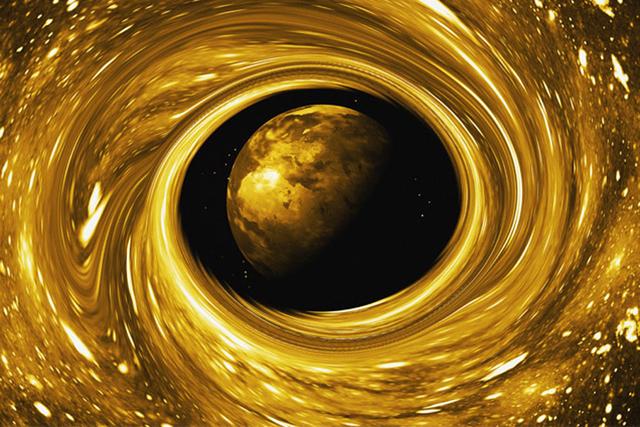(单词翻译:单击)
The difficulty in making final determinations is that there are often acres of room for interpretation. Imagine standing in a field at night and trying to decide how far away two distant electric lights are. Using fairly straightforward tools of astronomy you can easily enough determine that the bulbs are of equal brightness and that one is, say, 50 percent more distant than the other. But what you can't be certain of is whether the nearer light is, let us say, a 58-watt bulb that is 122 feet away or a 61-watt light that is 119 feet, 8 inches away. On top of that you must make allowances for distortions caused by variations in the Earth's atmosphere, by intergalactic dust, contaminating light from foreground stars, and many other factors.
若要作出最后的定论,难度确实很大,因为往往有很大的解释余地。想像一下,你夜间站在一片空地上,想要确定远处两盏电灯之间的距离。如果使用比较简单的天文学工具,你很容易确定两个灯泡的亮度一样,以及一个灯泡要比另一个灯泡远50%的距离。但是,你无法确定的是,较近的那盏灯,比如是37米以外的那个58瓦的灯泡,还是36.5米外的那个61瓦的灯泡。此外,你还必须考虑到由几个原因造成的失真:地球大气的变化,星际尘埃,背景恒星对光的污染,以及许多别的因素。
The upshot is that your computations are necessarily based on a series of nested assumptions, any of which could be a source of contention. There is also the problem that access to telescopes is always at a premium and historically measuring red shifts has been notably costly in telescope time. It could take all night to get a single exposure. In consequence, astronomers have sometimes been compelled (or willing) to base conclusions on notably scanty evidence. In cosmology, as the journalist Geoffrey Carr has suggested, we have "a mountain of theory built on a molehill of evidence." Or as Martin Rees has put it: "Our present satisfaction (with our state of understanding) may reflect the paucity of the data rather than the excellence of the theory."
因此,你的计算结果势必是以一系列嵌套的假设为基础的,其中任何一个都可能引起争议。还有一个问题:使用天文望远镜总是代价很高,在历史上,测量红移要长时间使用天文望远镜,令人注目地花钱很多。很可能要花上整整一个夜晚才能获得一张底片。结果,天文学家不得不(或者愿意)根据少得可怜的证据就下了结论。在宇宙学方面,正如记者杰弗里·卡尔指出的,我们“在鼹鼠丘似的证据上建立起大山似的理论”。或者像马丁·里斯说的:“我们目前的满足(于我们的认识状态)也许反映了数据的匮乏,而不是理论的高超。”


